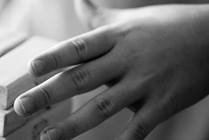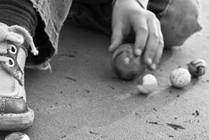Search Results
Viewing: 91-100 of 11822 | All

Condition
Congenital Hypothyroidism
This Helping Hand™ is about congenital hypothyroidism, which is when a baby is born without enough thyroid hormone. Learn more about symptoms and treatment for congenital hypothyroidism here.

Condition
Bicuspid Aortic Valve
Bicuspid aortic valve disease (BAV) is an irregularity in the heart where there are only two leaflets on a valve, instead of the normal three.

Condition
D-Transposition of the Great Vessels
D-Transposition of the great vessels (d-TGA) is a congenital heart defect where the aorta and pulmonary artery are switched from their normal positions. Shortly after birth, babies with d-TGA are blue because not enough oxygen is getting to the body.

Condition
Meniscus Tears
Meniscus tears are common injuries. The meniscus is the rubbery cartilage disc between the tibia and femur. It acts as a shock absorber in the joint. The meniscus helps provide stability in the knee.

Condition
Snapping Hip Syndrome
Snapping hip syndrome is a condition in which you may sense something catching or hear a popping sound or click in your hip when your hip joint moves. If you put your hand over the hip area, you might feel or even see the snap happen when walking, running, bending or getting up from a sitting position.

Condition
Auditory Processing Disorder (APD)
Auditory Processing Disorder (APD), also referred to as Central Auditory Processing Disorder (CAPD), is a disorder of the auditory (hearing) system that causes a disruption in the way that an individual’s brain understands what they are hearing. It is not a form of hearing loss.

Condition
Lower Urinary Tract Outlet Obstruction (LUTO)
Lower urinary tract outlet obstruction is when pee is partly or completely blocked from leaving the body at the lower urinary tract. LUTO occurs in about 1 in every 5,000 pregnancies. It is more common in males.

Condition
Lordosis
Lordosis is the natural curve of the lower back (lumbar) area of the spine. There are five primary types of lordosis: postural lordosis, congenital/traumatic lordosis, post-surgical laminectomy hyperlordosis, neuromuscular lordosis and lordosis secondary to hip flexion contracture.

Condition
Spleen Injury
This Helping Hand™ covers spleen injuries. Due to where the spleen is in the body and its size, it can get injured easily. Learn what to expect if your child has a spleen injury.

Condition
Sports Medicine: Adductor Muscle Strain
Adductors are a group of muscles that go from the pelvic bone down to the inner thigh and knee. An adductor strain is an injury to one of these muscles.
